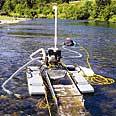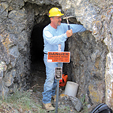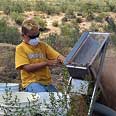All Articles
Legislative and Regulatory Update
October 2006 by Scott Harn
• Make your votes count
American citizens have responded strongly to a 2006 US Supreme Court decision (Kelo v. City of London) that allowed a city to seize private property by eminent domain.
Voters in numerous states have obtained enough signatures to place strongly worded measures on state ballots that will either curb or outlaw the use of eminent domain.
In addition, many of these measures will require state and local governments to provide just compensation for any new government regulations that restrict the use of private property or otherwise devalue private property.
A sampling shows measures will be on the ballot in numerous states to provide just compensation for new regulations, to prevent seizure by eminent domain, or both, in California (Proposition 90), Washington (Initiative 933), Idaho (Proposition 2), Arizona (Measure 207), Nevada (Nevada Property Owner’s Bill of Rights) and Montana (Initiative 154).
Oregon voters already passed a measure that requires compensation for government regulations, but a new initiative (Measure 39) seeks to prevent a government body from condemning private property if the intent is to convey that property to another private entity.
Please check your ballot and be sure to vote in the General Election on November 6, 2006.
• Court tells Forest Service many access fees are illegal
A federal court in Arizona has told the Forest Service that it can no longer collect user fees for many activities, with implications for hundreds of collection programs across the US.
In this particular case, a hiker was issued citations on two separate occasions for failure to pay a $5 access fee when parking on public lands administered by the Forest Service in the Mt. Lemmon area of Arizona.
The court ruled that the Forest Service was unlawfully charging for general access. Magistrate Judge Charles Pyle stated the Forest Service could only charge fees to citizens who use fully developed parking sites with amenities or fully-developed campgrounds. The judge ruled the Forest Service does not have the authority to collect fees for use of trails, for parking along roads, or for undeveloped, minimally developed or semi-developed sites. The agency is also prohibited from charging for camping at undeveloped sites.
The case is US v. Christine M. Wallace.
• Kensington update
Coeur d’Alene Mines has to negotiate another curve in the road for its Kensington Mine project after the US 9th Circuit Court of Appeals issued an injunction that halted some of the construction necessary for the project.
Environmentalists appealed a lower court decision that allowed the company to place waste rock in Lower Slate Lake northwest of Juneau, Alaska.
The injunction applies to cutting trees, building roads or dams and altering the water level of the lake, and will remain in place until the appeal runs its course. Construction of the mine and mill will continue.![]()
There’s Still Gold In Oregon’s Umpqua River
 The Umpqua River, located in the heart of western Oregon, flows for several miles nearly alongside Interstate Highway Five.
The Umpqua River, located in the heart of western Oregon, flows for several miles nearly alongside Interstate Highway Five.
Sampling for Success—Part II
 The first and most important thing of the sampling process is to try to be as unbiased as possible. There is a natural tendency to select rock that looks the best—even unconsciously.
The first and most important thing of the sampling process is to try to be as unbiased as possible. There is a natural tendency to select rock that looks the best—even unconsciously.
Global Hunter
 Chile may be considered geographically a part of Latin and South America, but it is remarkably different from other notable nations belonging to that region such as Mexico and Peru.
Chile may be considered geographically a part of Latin and South America, but it is remarkably different from other notable nations belonging to that region such as Mexico and Peru.
Prospecting Adventures—Pure Gold
 I often wonder if I would have felt the same about gold prospecting if my father had introduced me to it at a young age. Would I have the same passion and fascination that I do now? How much further along the learning curve would I be if...
I often wonder if I would have felt the same about gold prospecting if my father had introduced me to it at a young age. Would I have the same passion and fascination that I do now? How much further along the learning curve would I be if...
Platinum in Laccoliths
Laccoliths are unusual igneous features that seem to occur in the stable interior parts of continents. They are concordant igneous intrusions that have domed the overlying rocks and are circular in plan, and less than 10 miles in diameter. This article deals with some of the laccoliths found in the scenic Colorado Plateau province of Utah, Colorado, and Arizona...
Spectacular Specimens Found in Northern Nevada
A prospector, who wishes to remain nameless, located the pictured chevron gold specimens on October 29, 2003.
The Golden Highway—El Dorado County
Continuing northward and crossing the Consumnes River along California’s famed Highway 49, the “Golden Highway” leads through the heart of the Mother Lode countryto El Dorado County. This is where the Gold Rush began...
Subscription Required:
The Bawl Mill
• The Plumas Eureka District
• California State Gold Panning Championships
• Mergers Continue at Record Pace
• The Yukon-Klonkide Goldfields—Part II
• Foreign Investment Hits More Roadblocks
• The Treasure Detective—Part IV The Story of Goldstone Nuggets
• Another Uranium Boom in the West
• Court: Kennecott Eagle Minerals Application Complete
• Remote Mining Camps of Yuma County
• The Robin Redbreast Lode
• Final Buckhorn Mountain Study Released
• Melman on Gold & Silver
Free:








